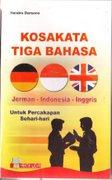Huckleberry Finn lived in the little town of St. Petersburg, Missouri. His father was the town drunk. Huck spent most of his life fishing on the banks of the Mississippi, sleeping in doorways, and having great adventures with his friend Tom Sawyer.
Things were always pretty dull until Huck and Tom discovered hidden treasure. They found twelve thousand dollars in gold. It was money that had been buried by robbers, so Judge Thatcher decided it was rightfully Huck’s and Tom’s. Each of them got six thousand dollars. The judge put the money in the bank for them and each of them got an allowance of a dollar a day.
Unfortunately, Huck’s father, Pap, was a drunken father. He seldom went home. Huck was scared of Pap because he hit Huck so much. He often forced Huck to withdraw some money from the bank.
Every once in a while Pap locked Huck in the old cabin and went to the store to trade fish for whiskey. He would fetch it home and get drunk. Then he would lock the door at night and put the key under his head alongside his gun. Huck couldn’t stand it any longer, so he planned to escape.
Huck found an old rusty saw with a broken handle. When Pap was away, Huck started sawing the end of the cabin behind a table. It was a long and tiring job! Before running away, he tried to design the place in such a way that people would think that he was killed by someone.
Note: I summarized this story from the novel The Adventures of Huckleberry Finn by Mark Twain, published by Baronet Books, New York.




